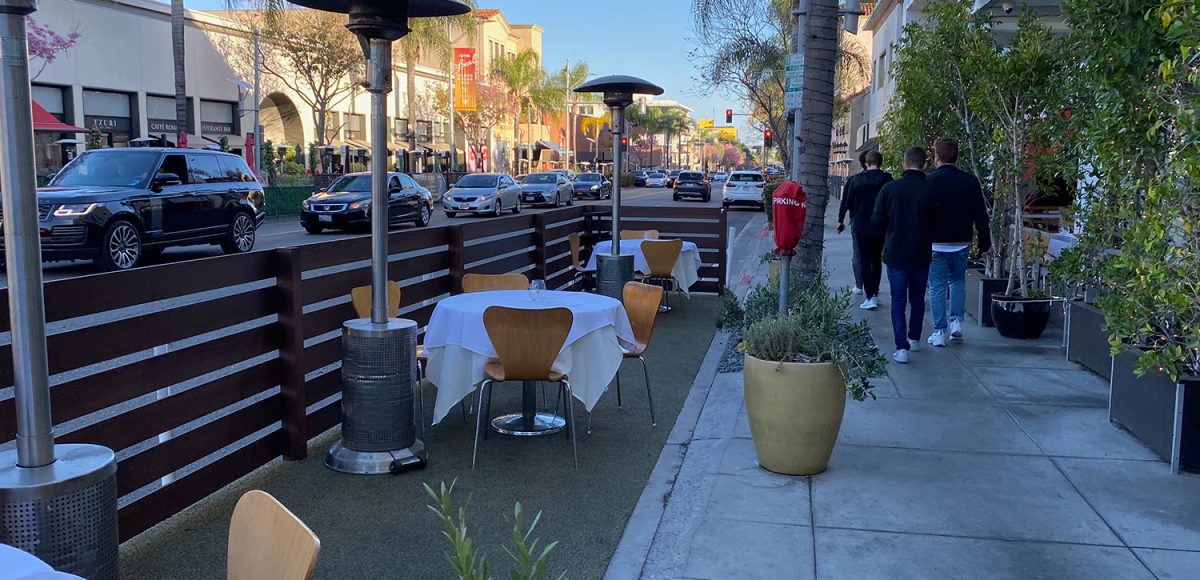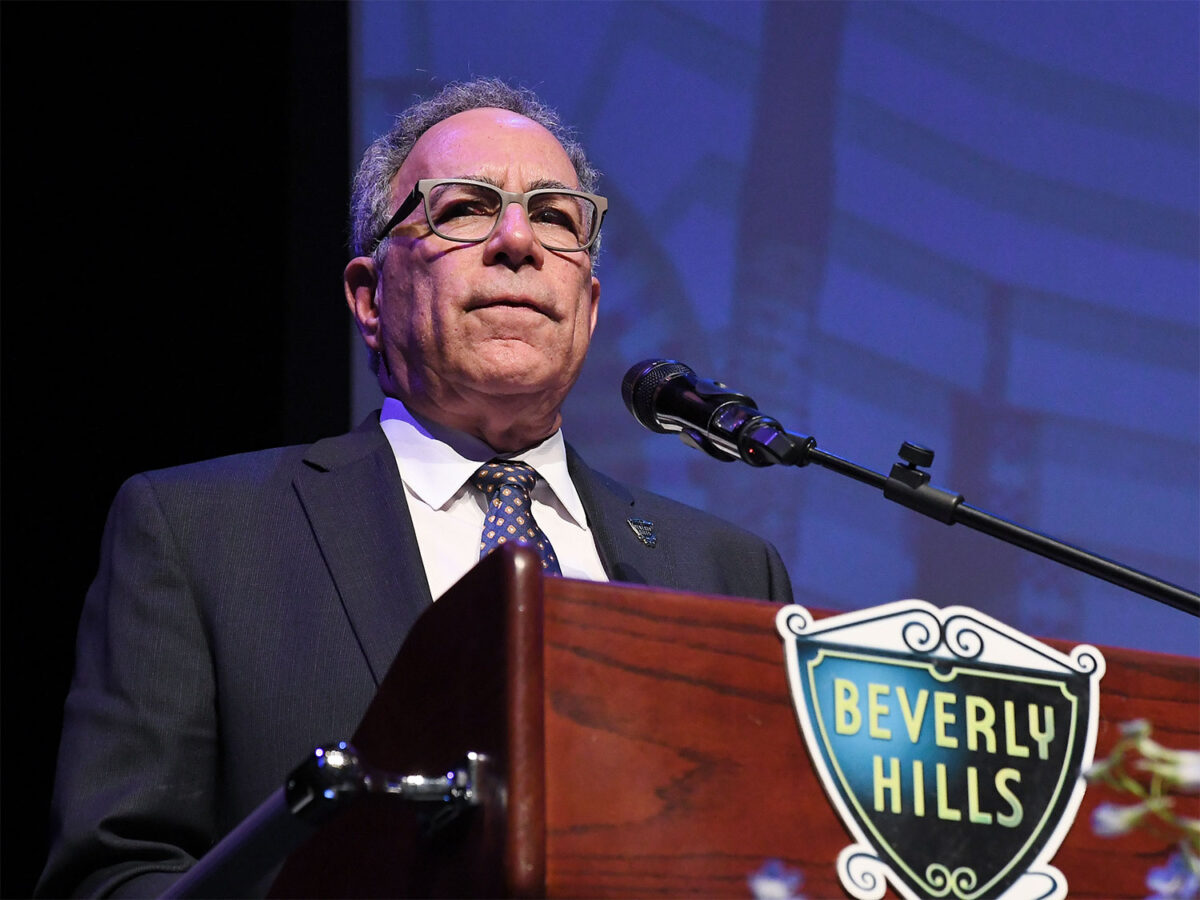To help restaurants survive the COVID-19 pandemic, the Beverly Hills City Council in 2020 launched OpenBH, a program that eased outdoor dining regulations and allowed restaurants to construct “parklets,” or dining areas that extend to public areas.
OpenBH was intended as a temporary solution, and turning it into a permanent program has been no easy task. After creating two subcommittees and holding about 16 months of stakeholder meetings, the City Council on Dec. 12 approved new outdoor dining regulations that build upon the OpenBH rules.
The new regulations are detailed and extensive, and they were approved after roughly two hours of public comments and council questions that spanned diverse topics including the change in fees and the different application processes.
While most business representatives who attended the meeting lauded OpenBH for buoying businesses throughout the pandemic and were broadly supportive of the new regulations, they said the continued OpenBH rules were now impacting businesses and they encouraged the council to move quickly in enacting the new rules.
Beverly Hills Chamber of Commerce President and CEO Todd Johnson asked the council to establish uniform requirements for sidewalk signage, and Alex Kahn, a commercial landlord, said some of his tenants have been “negatively affected” by neighboring restaurants with tall parklets.
Much of the council’s discussion centered on the implementation of the new regulations. Councilmember Sharona Nazarian indicated that she and Councilmember Lili Bosse had worked hard to make it easy for restaurants to comply.
“We were very thorough, and we tried to make the transition as easy as possible,” Nazarian said.
Under the new regulations, there are two pathways for restaurants to be approved for open-air dining. The quickest path is through a ministerial review in which applicants must meet predetermined requirements. Ministerial reviews can be expedited even further by the purchase of a “Kit-of-Parts,” which is a preapproved set of parklet elements, Nazarian added.
Applicants whose plans deviate from the ministerial review standards will have to undergo a discretionary review process in which the Director of Community Development reviews and decides on the request, according to a staff report. The Director of Community Development may send the applicant to the Planning Commission for additional review, which will cause additional delays.
A ministerial review without a Kit-of-Parts could take up to three weeks to be approved, while an applicant using a Kit-of-Parts could be approved in one week. Applicants undergoing a discretionary review could be approved in as little as two or as many as 16 weeks, depending on whether the application is referred to the Planning Commission.
The council also debated the nine-month “glidepath” during which all restaurants with OpenBH permits will be able to apply for new permits under the new regulations.
Bosse said it would be unfair for some restaurants to keep their permits for nine months before deciding not to reapply while other businesses spend money and effort to go through the application process.
In response, City Planner Masa Alkire said the city could require restaurants to submit an application within two months before “starting enforcement actions.”
Nazarian and Bosse were supportive of this recommendation, and Friedman said “I’m OK with the glidepath if there is an application within [60 days] because if not, I think it’s a free ride … for people not to make a decision.”
There are currently 38 businesses in the city with OpenBH permits, 21 of which have parklets.
Councilmember John Mirisch said he does not mind the nine-month glidepath if restaurants with OpenBH permits are not impacting neighboring businesses. Mirisch also said that the fees for participating restaurants are “very generous,” but are “somewhat of a compromise.”
Alkire said that fees would rise for businesses in parts of the Golden Triangle. “In most other areas of the city, the fees go down.”
Under the new regulations, sidewalk dining fees range from $1-$1.75 per square foot per month, while parklet fees range from $1.50-$2 per square foot per month.
The new regulations also impose new parklet design standards for keeping a clear path of travel on sidewalks, ensuring umbrellas and other barriers do not obstruct pedestrians and maintaining an appropriate distance from property lines. The regulations also stipulate that open-air dining permits must be renewed every five years.
The council voted unanimously to approve the new regulations, which will take effect following a second reading scheduled for January.







